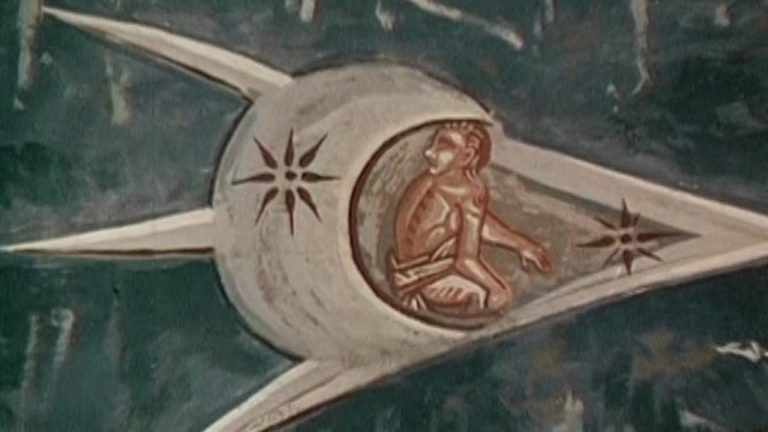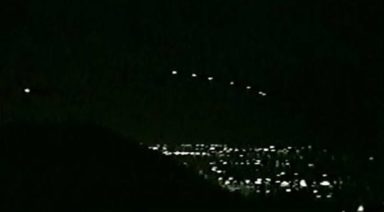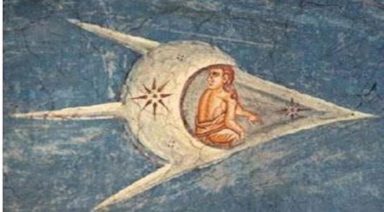The 50th Anniversary of Erich von Däniken’s Chariots of the Gods

The 50th Anniversary of Erich von Däniken’s Chariots of the Gods
This month marks the 50th anniversary of Erich von Däniken’s seminal work, Chariots of the God; a book that introduced millions to the novel idea that the deities of ancient religious scripture may have actually been advanced ancient astronauts from another part of the cosmos. Now, after half a century of criticism and scrutiny, von Däniken’s work has stood the test of time, spreading curiosity, wonder, and a message of modesty, that maybe there is more to our reality than we claim to know.
Originally released in 1968 under the title Erinnerungen an die Zukunft, or “Memories of the Future,” von Däniken’s book would be rechristened Chariots of the Gods, after an English publisher read his interpretation of Ezekiel’s vision in the Old Testament.
The title would go on to sell 16 million copies, laying the groundwork for 40 sequels that sold 72 million books worldwide. Von Däniken’s work inspired a number of eminent Hollywood productions, television series, and written works that challenged archeological and theological tenets, much to the chagrin of mainstream scholars.
He prefaced Chariots of the Gods with the sentence, “It took courage to write this book and it will take courage to read it,” knowing he faced detractors who would dismiss his theory as sacrilege.
After Chariots of the Gods found success in its paperback sales, it became the impetus for a television series called In Search of the Ancient Astronauts. The series featured interviews with such names as Carl Sagan and Werner von Braun, and was narrated by Rod Serling and Leonard Nimoy.
This set the stage for the popular, contemporary series Ancient Aliens, on History Channel. And now, the legacy continues with Erich von Däniken: Beyond the Legend, on Gaia; a series dissecting his theory and its implications on modern society.
But despite a lifetime of success, von Däniken continues to fend off cynics, maintaining his intention to instill a sense of humility in scientists and theologians who often believe we are alone, or at the top of the universe’s evolutionary chain.
Over decades of welcomed critique, von Däniken has admitted when he was wrong, revised his ideas when necessary, and accepted adversity when presented to him. And in the face of it all, he remains steadfast in his overarching theory that has found increasing support and evidence to boot.
The Betty and Barney Hill Abduction

On the evening of September 19, 1961, Barney and Betty Hill, along with their dog Delsey, were returning to their Portsmouth, New Hampshire, home after a short vacation to Niagara Falls. They were traveling on Highway 3, just south of Lancaster, when they saw a bright light in the sky. Betty, who was in the passenger seat, watched the light move lower into the sky. At first, Barney thought it was probably an airplane. Betty, who had heard of unidentified flying objects (UFOs), was sure she was looking at a flying saucer.
The Hills stopped to get a closer look at the object and let Delsey out for a short walk. Barney remained curious, but just a little frightened. He got out of the car and used his binoculars, but still could not figure out what he was looking at. He stopped the car a few more times on the way home. He described seeing lights of all different colors and rows of windows on the object. He described the object as “pancake shaped.” At one point, he approached the object and could see several occupants inside, which scared him so badly he ran quickly back to the car to join Betty where she was waiting for him.
The couple then heard buzzing sounds and felt tingling sensations throughout their bodies, but ultimately, they drove home, where they went straight to bed exhausted. They did not wake up until late the following afternoon. They then realized the four-hour trip home from Niagara Falls had taken them seven hours. Betty noticed the dress she was wearing was torn in several places and had a pinkish powder on it. The powder was later examined by five different laboratories. None of them could identify the substance.
The toes of Barney’s good dress shoes were scuffed to the point he could no longer wear them. The binoculars strap was broken and looked like it had been cut. Both Barney and Betty were wearing watches at the time of their unusual encounter. Both watches quit working and never worked again. Shiny, concentric circles appeared on the trunk of the car that seemed to have some sort of magnetic connection. They noted a strange reaction from a compass after it was placed near the circles.
At her sister’s urging, Betty called the nearby Pease Air Force base to report the incident. As Betty and Barney each recalled the incident, they became convinced they had been abducted by extraterrestrials.
The Betty and Barney Hill abduction story was the first of its kind, but certainly not the last. Although the incident happened more than 50 years ago, it is still being discussed and analyzed today. Were the Hills really abducted? If so, what happened to them during their time on the spaceship? What and who did they see? How did they communicate? Where were the extraterrestrials from? Let’s find out what exactly happened in the aftermath of this historical milestone event.
The Air Force Investigation
Barney would have preferred to just keep the experience quiet and between the two of them, fearing that he and Betty would be viewed as “eccentric.” Betty won their brief argument on the issue and on September 21, she called the Air Force to report their experience. Major Paul Henderson visited them in person and wrote a report of the interview dated September 26, 1961. It’s unclear whether or not Henderson viewed the Hills as credible; a National Investigations Committee on Aerial Phenomena (NICAP) report concludes that there was “insufficient data in the Air Force files.”




































